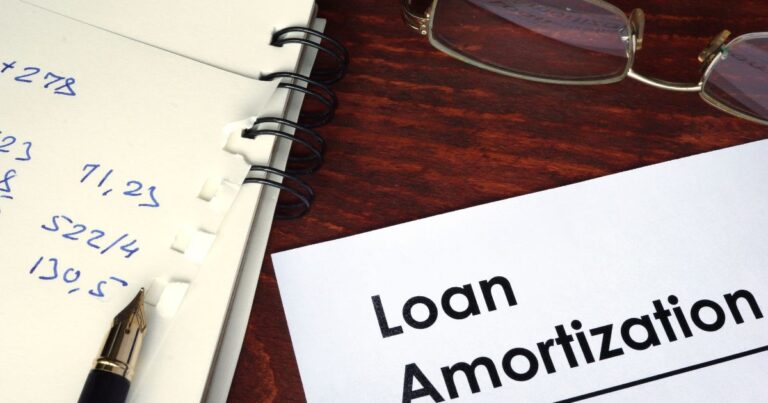Introduction
Many people and families view acquiring their first house as a watershed moment. As you embark on this exciting journey, it is crucial to understand the concept of mortgage amortization and its implications for your financial future. Mortgage amortization refers to the gradual repayment of a mortgage loan through regular payments over a predetermined period. In this detailed guide, we will explore the ins and outs of mortgage amortization, shedding light on its definition, how it works, and the factors you need to consider before committing to a mortgage.
Understanding Mortgage Amortization
Amortization of a mortgage refers to the gradual reduction of a loan balance through the use of equal monthly payments. Each payment comprises two components: principal and interest. The initial sum that was loaned is referred to as the principal, while the interest represents the expense incurred as a result of getting the money from the lender. Through the process of amortization, each payment contributes to reducing the principal balance and paying off the accrued interest.
How Does Mortgage Amortization Work?
To understand how mortgage amortization works, it’s important to familiarize yourself with an amortization schedule. This schedule outlines the payment structure over the life of the loan, indicating the amount of each payment that goes toward the principal and the interest. At the outset of the loan term, a larger portion of each payment is allocated to interest, and a smaller portion is allocated to principal reduction. As the loan progresses, the interest portion decreases while the principal portion grows. At the conclusion of the loan term, the entire principal balance has been repaid, and the mortgage has been entirely amortized.
Factors Influencing Mortgage Amortization
Several factors can influence the rate at which your mortgage amortizes:
- Interest Rate: The mortgage interest rate has a direct bearing on the total quantity of interest you will pay over time. Lower interest rates can accelerate amortization, as a greater proportion of your payment goes toward principal reduction.
- Loan Term: The length of your loan affects your mortgage’s amortization as well. Shorter loan terms, such as 15 years, result in higher monthly payments but can lead to faster amortization and lower overall interest costs compared to longer loan terms.
- Additional Payments: Making extra payments towards the principal can significantly impact the amortization of your mortgage. You can minimize the main balance and interest costs during the life of the loan by paying more than the minimum monthly payment.
- Refinancing: Refinancing your mortgage involves obtaining a new loan to replace your existing one. This can result in a new amortization schedule with new terms, such as a reduced interest rate or a shorter loan term. Refinancing can accelerate the amortization process and help you pay off your mortgage sooner.
Considering the Implications
Understanding mortgage amortization is crucial for homeowners, as it has several implications for your financial well-being:
- Equity Build-Up: One of the significant advantages of mortgage amortization is the gradual build-up of home equity. As you make regular payments and reduce the principal balance, your ownership stake in the property increases. Over time, this can provide you with a valuable asset that can be leveraged for future financial needs.
- Interest Payments: During the first few years of a mortgage, a larger amount of your monthly payment is dedicated to interest payments. This means that it may take several years before a significant amount of your payment goes towards reducing the principal. It’s important to factor in this interest cost when budgeting for homeownership.
- Loan Term and Interest Savings: The period of your loan has a significant impact on the amount of interest you pay over time. Shorter loan durations often result in higher monthly payments but significant interest savings.
- Refinancing Opportunities: Understanding mortgage amortization can help you identify potential opportunities to refinance your loan. If market conditions are favorable and interest rates have dropped since you initially took out your mortgage, refinancing can allow you to secure a new loan with a lower interest rate. Refinancing to a lower rate or a shorter loan term can accelerate the amortization process, saving money on interest and paying off your mortgage faster.
- Prepayment Options: Many mortgages offer prepayment options that allow borrowers to make additional payments towards the principal balance. By taking advantage of these options, you can accelerate the amortization process even further. Making extra payments, whether on a regular basis or as lump-sum contributions, reduces the outstanding principal balance, which in turn reduces the amount of interest you will pay over the life span of the loan.
The Benefits of Understanding Mortgage Amortization
Having a thorough understanding of mortgage amortization can bring several benefits to homeowners:
- Financial Planning: Understanding how your mortgage amortizes allows you to plan your finances effectively. You can create a budget that accounts for your monthly mortgage payments, track your progress in paying off the principal, and set financial goals related to your mortgage, such as paying it off early or building equity in your home.
- Equity Building: As you make regular mortgage payments, your equity in the property increases. The main difference between the market value of your house and the outstanding balance on your mortgage is referred to as equity. Building equity provides you with a valuable asset that can be leveraged for future financial needs or used as a down payment for another property.
- Interest Savings: By understanding mortgage amortization, you can identify opportunities to save on interest costs. Making extra principal payments or refinancing to a lower interest rate will assist in minimizing the total amount of interest you pay throughout the life of the loan. This can help you save a lot of money and pay off your mortgage faster.
- Flexibility and Control: Having a clear understanding of mortgage amortization gives you more control over your financial future. You can evaluate different scenarios, such as increasing your monthly payments or adjusting the loan term, to determine how they would impact the amortization process. This flexibility allows you to make informed decisions that align with your financial goals and circumstances.
- Homeownership Confidence: Finally, understanding mortgage amortization instills confidence in your homeownership journey. It empowers you to navigate the complexities of your mortgage, communicate effectively with your lender, and make informed choices regarding your mortgage payments and financial strategy. This confidence contributes to a sense of financial security and peace of mind.
Conclusion
Mortgage amortization is a fundamental aspect of homeownership that requires careful consideration; by understanding how mortgage amortization works and the factors that influence it, you can make informed decisions regarding your mortgage. Take the time to review your amortization schedule, explore opportunities for refinancing or making extra payments, and assess the impact on your overall financial goals. A solid understanding of mortgage amortization will empower you to manage your mortgage effectively, build equity in your home, and save money on interest in the long run. If you want specific recommendations tailored to your situation, it’s important to talk to a mortgage expert. They’ll be able to help you every step of the way.
FAQs
What is mortgage amortization?
The term “mortgage amortization” describes the method of making monthly payments toward the principal balance of a mortgage loan. Each payment includes both principal and interest, with the goal of fully repaying the loan by the end of its term.
How does mortgage amortization affect my monthly payments?
Mortgage amortization impacts your monthly payments by allocating a portion of each payment toward reducing the principal balance and another portion toward paying the accrued interest. Initially, a larger percentage of the payment goes towards interest, but over time, more of the payment goes towards reducing the principal.
What factors influence the rate at which my mortgage amortizes?
The rate at which your mortgage amortizes is influenced by several factors, including the interest rate on loan, the loan term (the length of time period over which the loan is repaid), and any additional payments you make towards the principal balance. Lower interest rates, shorter loan terms, and extra principal payments can all accelerate the amortization process.
Can I change the amortization schedule of my mortgage?
The amortization schedule of your mortgage is typically set when you first take out the loan. However, you may have some flexibility to change it. For example, refinancing your mortgage can lead to a new amortization schedule with different terms. Additionally, making extra payments toward the principal can shorten the overall amortization period.
How does mortgage amortization affect my equity in the home?
Mortgage amortization plays a crucial role in building equity in your home. As you make regular payments, the principal balance decreases, and your ownership stake, or equity, increases. Over time, as more of each payment goes towards the principal, your equity grows at an accelerated rate.
Visit our website ExpressMortgageQuotes.com to learn more.




